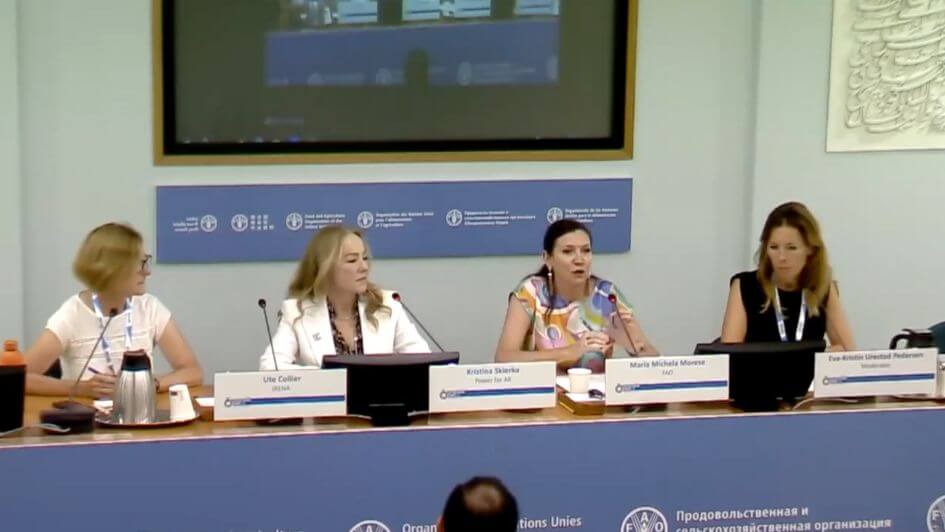As the world battles climate change, agriculture is caught in the eye of the storm. In a recent panel discussion at The UN Food Systems Summit +2 Stocktaking Moment, experts from Power for All, IRENA, and UN FAO discussed the intersection between renewable energy and agriculture, shedding light on opportunities and cautionary tales.
The Promise of Mini-Grids and Decentralized Renewables
Decentralized renewables and mini-grids were highlighted as vital tools. Their flexibility addresses the intertwined challenges of agriculture, energy consumption, and environmental conservation in rural areas that are beyond traditional grid infrastructure’s physical and profitable reach.
With the world's population predicted to hit 10 billion by 2050, there’s a rising demand for sustainable agricultural practices, and with it, the need for efficient energy systems. Regions like Africa, where on-farm energy use remains disproportionately low, can particularly benefit from the targeted implementation of mini-grids. By setting clear targets and collaborating with NGOs and the private sector, governments can leverage the transformative potential of decentralized energy solutions in agriculture.
The Role of Biogas and Other Technologies
Biogas was another key point of discussion. By converting agricultural and animal waste into energy, biogas can be used for cooking and other needs. The byproduct, called digestate, can also be used as fertilizer, providing a circular economy solution.
Topics like micro gasification systems, sustainable bioenergy, and the importance of refrigeration in food preservation were also discussed, highlighting the multifaceted applications of renewable energy in agriculture.
Gender Inclusion and Job Opportunities
While women are often the backbone of agriculture, they encounter significant barriers to resources.Renewable energy sources will encourage gender-inclusive policies,vital for success. Renewables in agriculture also present an excellent opportunity for youth employment, bridging the gap between traditional farming and modern technology.
Policy Alignment and Courage
A notable challenge is the disconnect between government departments dealing with agriculture and energy. In an extensive review of national agricultural plans, Power for All found very little mention of energy and almost no mention of renewables. To ensure that this crucial technology is integrated into future food systems, there must be greater inter-departmental collaboration and policy alignment.
Collecting data for informed decision-making and diversification of energy sources were stressed as crucial aspects, ensuring that policies are grounded in facts and local needs.
Solar Irrigation - Balancing Access with Conservation
Solar irrigation was discussed at length, as a means for increasing productivity and crop yields. However, as was pointed out, its adoption needs careful consideration. Without sustainable water management practices, overuse could lead to stress on local aquifers. For example, utilizing sprinklers during the peak heat of the day wastes water. It's crucial to understand that even with increased access, water remains a finite and increasingly precious resource.
Conclusion: An Opportunity Not to be Missed
The panel discussion served as a rallying point. Renewable energy in agriculture isn't merely a trend; it's a necessity. While there is promise in the technologies discussed, the need for sustainable practices, gender-inclusive policies, and bold, informed decisions by policymakers is paramount.
The discourse opened up avenues for hope, innovation, and improvement across different sectors. It's a wake-up call that renewable energy in agriculture is not just about battling climate change but also about unlocking new avenues for development, growth, and empowerment.
With collaborative efforts from governments, international organizations, and the private sector, the integration of sustainable agriculture and renewable energy can help build sustainable food systems. But as the panelists warned, let's not get carried away; there's much work to be done.
